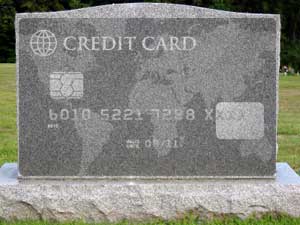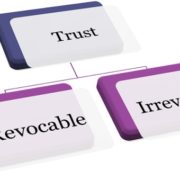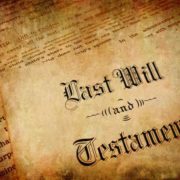Debt after Death – What Every Family Member Should Know
Cleveland, Ohio Probate Attorney
Debt after Death – What Every Family Member Should Know
You come home one day to find a letter from a credit card company demanding $5,000 for the debt of your late husband. The credit card company demands payment and threatens to take legal action against you if the debt is not paid. Don’t be afraid of these bullies. Here’s what you need to know.
First, the credit card company is correct in their efforts to collect a debt from the estate. Debts to not die with the deceased but instead go through the estate. However, creditors cannot hold you personally liable. Instead, in most cases, creditors may only assert claims against the estate. If the debts exceed the value of the estate, then the creditors may not come after family members.
Of course, there are exceptions. When dealing with the debt of a deceased person it’s important to consider whether you’re a co-signer on a note. Each account holder can be held legally responsible for an outstanding balance. Thus, if you co-signed for a mortgage or a car loan, you are still personally responsible for the debt. Using the example above, let’s say that you never used the credit card and all the purchases were your late husband’s. Unfortunately, if you co-signed the credit card application then you’re still liable for the debts. This rule only applies to co-signers, not authorized users.
It is the role of the executor of the estate to pay the deceased person’s outstanding bills. It is recommended that executors contact a qualified probate attorney to understand the probate laws and processes. If you are not the executor of the estate but are receiving phone calls and/or letters asking you to pay, you should refer the creditor to the executor. If they are persistent, send a certified letter stating that the person is deceased and you are not responsible for paying the debt. Don’t let yourself be intimidated into paying a debt you are not responsible for. If the bill collector is making claims you don’t believe are true, such as saying you are a co-signer on the account, ask for proof. Let them know you are aware of your rights and will report them if they do not stop calling you. Harassing bill collectors can be reported to the Federal Trade Commission (877-382-4357) and state attorney general’s office.
In sum, heirs and loved ones are not responsible for a decedent’s debts. If the person incurred the debt in his name alone, creditors either receive payment through the probate process or they don’t receive payment at all. For more information regarding probate and estate planning contact Cleveland, Ohio probate attorney Dan Baron. Call today for a free consultation at 216-573-3723. Baron Law LLC is your Cleveland, Ohio estate planning law firm.











